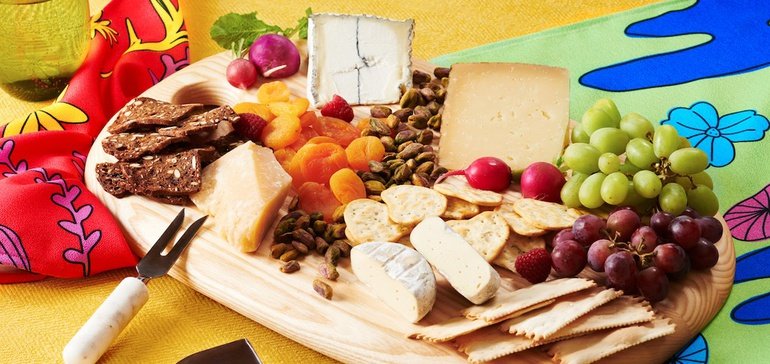Plant-based cheese maker Nobell Foods raises $75M for expansion

Dive Brief:
- Nobell Foods, a plant-based cheese company still in its R&D phase, received a $75 million Series B investment round, bringing its total funding up to $100 million. The round was led by Andreessen Horowitz, Bill Gates-backed Breakthrough Energy Ventures and Robert Downey Jr.’s FootPrint Coalition Ventures. Other participants in this round include Unovis, Germin8 Ventures, Fifty Years, AgFunder, Pear VC, GL Ventures and Mission Bay Capital.
- The California-based company, which launched in 2017 with funding from Y Combinator, makes plant-based casein protein from bioengineered soybeans. The latest round of funds will be used to expand Nobell’s team and farming partnerships, scale production and bring products to market, the company said in a written statement. It is aiming for a late 2022 launch.
- While plant-based cheese is a burgeoning segment of food, Nobell is taking a markedly different approach by making casein — the protein most closely associated with cheese’s stretch — from a plant source. Casein is a unique protein to dairy, and a few startups — including New Culture and Change Foods — are working on growing casein protein through microbial fermentation.
Dive Insight:
Nobell Foods is an up and coming player in plant-based cheese, and may have the technology to completely change the game.
While plant-based cheese has been growing along with the rest of the category, its sales increases have been relatively sluggish. And this is for good reason. The dairy-free cheeses of a decade or more ago, which were largely inferior in terms of taste, performance and mouthfeel, left a bad taste in consumers’ mouths. Numerator statistics Danone shared with Food Dive last year tell this story: 22% of potential plant-based cheese consumers don’t think the products will taste good.
Nobell, founded by Lebanon-raised engineer Magi Richani, could obliterate the perception that plant-based cheese isn’t as good as the dairy product. Like plant-based meat titan Impossible Foods, Nobell has gone to the plant kingdom to develop a molecule that makes something unique to animal-based food. In an interview with Fast Company, Richani said Nobell has used genetic engineering to change soybeans so that they produce casein. Soybeans are relatively plentiful, which means that it’s easy and cost-effective to grow them to produce plant-based casein. With soy-derived casein, it is also very easy for the cost of these plant-based cheese products to get to price parity with dairy cheese — something that is a further off goal for companies making casein proteins in bioreactors.
This type of approach has been successful for Impossible Foods, which ferments bioengineered yeast to produce soy leghemoglobin — a plant-based version of the heme protein that gives meat its distinctive taste. While Impossible Foods is a private company and doesn’t publicly report its sales, its success has been apparent. As of April, Impossible Burgers were sold in more than 20,000 stores in the U.S., and its products are on thousands of restaurant and foodservice menus, including every Burger King in the country. Industry watchers say Impossible’s technology has made a huge change in the way consumers perceive plant-based meat. And while there has been some consumer pushback against Impossible’s key ingredient because it comes from GMOs, it hasn’t necessarily harmed its sales.
Nobell’s website says there are many sustainability-minded consumers who are willing to give up meat, but not dairy cheese. The company says it is working on making dairy-free mozzarella and cheddar cheeses, which make up about 60% of the cheese consumed in the United States, in order to make the biggest impact. The goal, Nobell’s website states, is to provide skeptical consumers with something that is as good as dairy cheese, but remains plant-based.
However, traditional cheese is a difficult place for any nondairy brand to get a foothold. Dairy-based cheese is still posting phenomenal growth, with sales last year in natural and multi-outlet groceries rising 21.2%, and increasing 24.5% in regional grocery stores, according to SPINS. But with a powerful team of financial backers and continuing growth in the plant-based cheese segment, consumers may be more ready for Nobell’s cheese-like option when it hits markets in the next couple of years.
Source: fooddive.com

